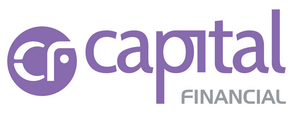Creating a healthy organization is a cornerstone of sustainable success. Businesses that prioritize organizational health not only benefit from enhanced employee engagement but also see improvements in productivity, customer satisfaction, and long-term growth. Understanding the core elements that contribute to a healthy workplace can provide a roadmap for leaders aiming to transform their organizations.
The impact of healthy organizations
Healthy organizations thrive on alignment, transparency, and resilience. When employees feel valued and motivated, their contributions extend beyond routine tasks, fueling innovation and collaboration. Additionally, healthy workplaces experience lower turnover rates, reduced absenteeism, and higher morale. These factors combine to create a competitive edge, allowing businesses to navigate challenges while maintaining consistent performance.
Healthy organizations also make a positive impact externally. Happy and engaged employees provide better customer experiences, bolstering brand reputation and loyalty. Furthermore, businesses that focus on organizational health are better equipped to attract and retain top talent, an invaluable asset in today’s competitive landscape.
The framework for organizational health
Clear leadership and vision
Effective leadership is the backbone of a healthy organization. Leaders who communicate a clear vision and provide consistent guidance create a unified team. Transparency and accountability further strengthen trust between management and employees.
Employee well-being and engagement
Supporting employee well-being through resources, recognition, and growth opportunities fosters a sense of belonging. Engaged employees are not only more productive but also act as ambassadors for the company.
Streamlined operations
Managing complex administrative functions can drain valuable time and resources. Leveraging HR outsourcing services enables organizations to focus on core objectives. By outsourcing payroll, compliance, and other HR tasks, businesses can operate more efficiently and dedicate resources to strategic initiatives.
Creating a sustainable culture
Healthy organizations are built on cultures that prioritize adaptability and continuous improvement. This includes creating feedback mechanisms, offering professional development, and embracing flexibility. A workplace culture that values open communication and collaboration lays the foundation for long-term success.
Investing in organizational health delivers returns far beyond the immediate workforce. Enhanced efficiency, stronger team dynamics, and improved customer relationships are just a few of the lasting benefits. By focusing on these frameworks and leveraging tools like HR outsourcing services, businesses can build environments where employees and operations flourish together. Check out the accompanying resource below for more information.




